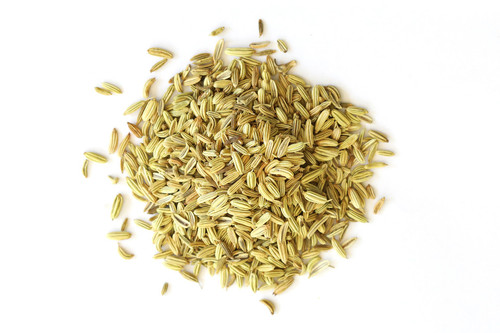Foeniculum vulgare, or fennel, is an annual, biennial, or perennial herb of the Apiaceae family, native to the Mediterranean but now widespread globally. Growing up to 6 feet tall, it features bright yellow, umbrella-shaped flowers and feathery, dill-like leaves. Valued since ancient times by Greeks, Romans, Egyptians, Chinese, and Indians, fennel was used by Hippocrates and cultivated by Romans as a spice, vegetable, and digestive aid. Named "marathon" in Greek for its association with weight control, fennel has been a culinary staple in Mediterranean dishes, liqueurs like gin and absinthe, and traditional remedies, notably by the Cherokee for infant digestion and childbirth support.
Fennel supports healthy digestion, relieving occasional gas and bloating with its carminative properties, and may aid expectoration and stimulate milk production in nursing mothers.
- Seed: The aromatic, sweet-tasting seeds are used in culinary dishes, herbal tea blends, or tinctures. Often served as fennel tea after meals, they gently support digestion, reduce bloating, and add flavor to baked goods, sauces, and liqueurs.
- Seed Powder: Ground from seeds, the powder is incorporated into herbal syrups, culinary recipes, baked goods, or tinctures. It offers the same digestive and carminative benefits as whole seeds, with the convenience of precise dosing for supplements or blending.
Precautions
No known precautions. We recommend that you consult with a qualified healthcare practitioner before using herbal products, particularly if you are pregnant, nursing, or on any medications.
No known precautions. We recommend that you consult with a qualified healthcare practitioner before using herbal products, particularly if you are pregnant, nursing, or on any medications.
This information has not been evaluated by the Food and Drug Administration. This product is not intended to diagnose, treat, cure, or prevent any disease. For educational purposes only.










